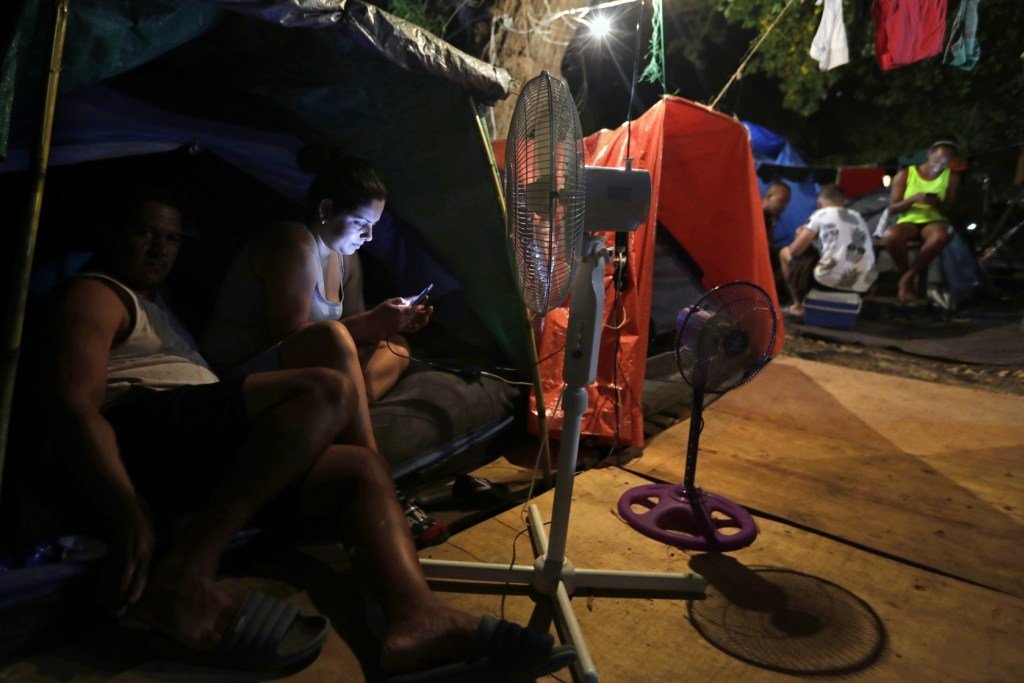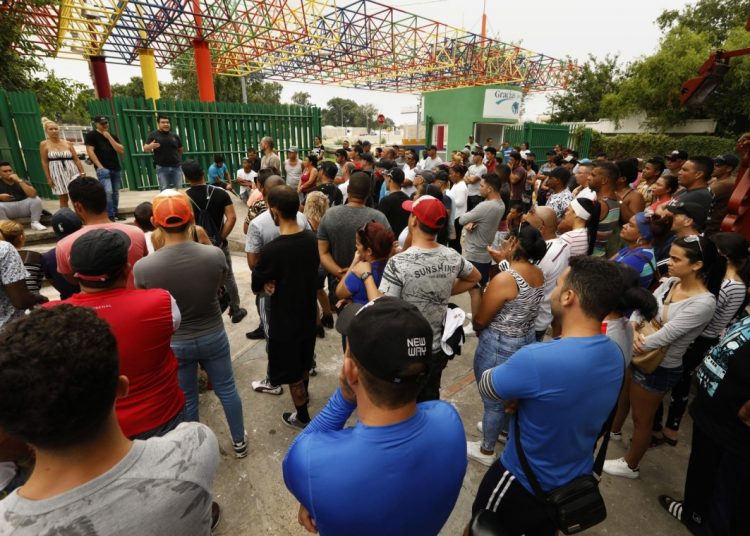The deportations of Cubans have increased since Donald Trump arrived at the White House. An extensive Los Angeles Times story relates the uncertainty of thousands of Cubans waiting at the Mexican border to enter the United States.
Compared to the 64 Cubans deported in 2016, the last year of the Barack Obama presidency, in 2018 the figure grew to 463 and in June this year it had already exceeded 380. Projections for the end of December stand at around 560, according to the U.S. publication. But the number could be higher.

The flow of Cubans who appear on the southern border of the United States without prior permission to enter does not cease. The Los Angeles Times sets at more than 20,000 the number of those that would be classified as “inadmissible” by U.S. border authorities in 2019 and, consequently, could venture to enter illegally.
According to this publication, at the beginning of July there were already more than 16,000 Cubans classified as such.
The loss of the privileges granted to the island’s migrants through the “wet foot/dry foot” policy, eliminated by Obama in the last days of his administration, was a blow to the aspirations of Cuban migrants, and especially families separated on both sides of the Florida Strait. And although the so-called Cuban Adjustment Act remains in force, the increasing difficulties to enter the United States make it more difficult for many to enter.
Trump has done nothing to change this scenario, according to the media; on the contrary, he has minimized consular procedures―affecting even the Family Reunification program and visa quotas agreed with the Cuban government―and has increased the number of deportations, while applying an increasingly aggressive policy against the island, which includes the full activation of the Helms-Burton Act.
The “explicit” objective of this Trump policy is “to make Cubans as miserable as possible so they overthrow the government,” said William LeoGrande, a professor at the American University of Washington, quoted by the Los Angeles Times.
In his opinion, the current U.S. government “is contributing directly to the increase of Cuban migration” through the “putting the lid on the pot” strategy.
“We intentionally keep the lid on so that unhappy people cannot leave,” explains LeoGrande. “The hope is that the pot explodes.”
El limbo de miles de cubanos que esperan para emigrar a EEUU
However, Trump’s hardline rhetoric against Cuba hides a “quieter cooperation” with Havana on the issue of repatriations to the island, according to the Californian media, which reveals that although the State Department still classifies Cuba as “non-cooperative” to recover its citizens, it hasn’t imposed sanctions against it for this reason as it has done against other nations.
In this direction, the U.S. Customs and Border Protection Office affirms that the deportations “are part of the ongoing normalization of relations between the governments of the United States and Cuba and reflect the commitment to have a broader immigration policy where we treat people from different countries accordingly.”
Given this scenario, many possible immigrants from the island are wagering on requesting asylum at the border as the only way to enter the United States. For the first time, Cubans are among the main nationalities making claims of “credible fear” that they will be persecuted in their country, the first step to request asylum, the publication says.
As of June, 882 Cubans had received asylum decisions in U.S. immigration courts this year, compared to 59 in 2016, according to data from Syracuse University. The denial rate is around 50%, an improvement over the record under previous administrations. But to get to this point, you must first reach the border and submit the application.
Washington’s new measures, which require applicants to wait outside U.S. territory, also have an impact on Cuban migrants at the border, who now have a double and long wait ahead of them: first to be able to apply for asylum and then wait for the United States authorities’ decision.
Meanwhile, the waiting compass becomes endless and distressing, not only because of the delay in the process―up to six months to see an immigration judge in El Paso―and the precarious conditions in which the majority must wait, but also because of the dangers they face, particularly those seeking to reunite with their relatives on the other side, the favorite victims of organized crime.
“I feel very afraid here,” Lázaro Guzmán, one of the Cuban migrants waiting in Mexico, told the Los Angeles Times. “We hear stories about robberies, murders, assaults, kidnappings, especially for us, who have family in the United States.”

However, the media points out that until now Trump has barely paid a political price for deporting Cubans or preventing access at the border.
One of his main allies, Cuban-American Senator Marco Rubio, said the deportations were “terrible,” but said that “with the amount of migrants on the border today, Cubans cannot receive special treatment.”
For his part, Sebastián Arcos, associate director of the Cuba Research Institute at Florida International University, considered that “the reaction against this policy of returning Cubans to Mexico and the island has not reached a significant enough level for it to make a difference in the presidential elections” of 2020.
In his opinion, most Cubans who have been residing in the United States for a long time―the so-called “hard exile”―”are still happy with President Trump’s policies” against the Cuban government, something that contrasts with the vision of the more recent emigrants, more inclined to bilateral rapprochement.
Florida is a key state in the electoral race next year and Trump has opted to “woo Cuban-American conservatives who largely opposed the thaw” boosted by Obama, recalls the Los Angeles Times, in a conflict in which Cuban migrants seem to be collateral damage or part of a well-calculated strategy.










